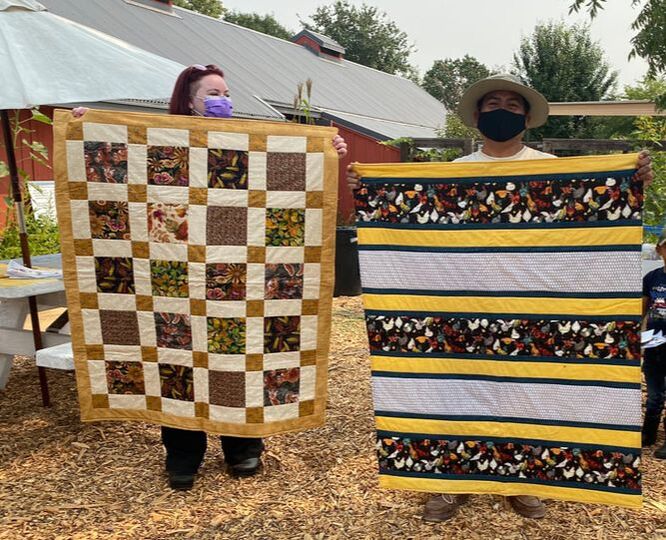Community Pathways
|
As a residency, we are committed to inspiring underrepresented minority students with the possibility of pursuing a career in medicine. We believe that every student carries the potential to accomplish their life’s ambitions but we also understand that system and society barriers exist that prevent this access equally for all youth.
Hence, in 2011, we launched our Future Faces of Family Medicine High School Pipeline Program. |
Scholars engage in four months of hands-on learning workshops led by family medicine residents and faculty who serve as their mentors. Workshop examples include obstetric simulation, effective patient communication, contraceptives, and essay writing. To date, 60% of our alumni reported being pre-med and 76% reported that FFFM was very helpful in guiding their current career choice.
Then in 2014, we expanded our youth engagement to include the Bayer Farms Outreach Program, a partnership with LandPaths to offer an adapted summer curriculum that utilizes the gardens and open space to teach healthy lifestyle habits to the Roseland-based community youth receiving free or reduced lunch. In the same year, we originated our partnership with the Roseland Leadership Academy Elementary School to initiate our inaugural Cesar Chavez Health Fair, now in its upcoming 5th year. Children from T-kindergarten through second grade participate in interactive lifestyle activities and medical career exploration.
Our most current pipeline expansions occurred in 2018 when we piloted our Roseland Pathway Project with our partner elementary school, where Sutter Family Medicine residents implement lessons on Healthy Eating Active Living (HEAL) and medical career exploration. Also, we developed our Doctors Educating, Advocating, and Mentoring (Dr. EAM) Pre-Med Internship Program. The internship fosters further leadership skills development, medical shadowing opportunities, mentorship, and community engagement. The student is also given opportunities to shadow physicians in our Santa Rosa Health clinics and on the inpatient medicine service in the Sutter Hospital.
As a program, we work to understand barriers to our youths’ success and subsequently develop program enhancements to rise above those barriers. Some self-identified barriers for our youth have been finances, poor grades, lack of medical work experience, and family commitments. Through additional evaluation data, we have identified needs to increase parent engagement/education, classroom-based program goal reinforcement, and experiential medical learning opportunities.
Then in 2014, we expanded our youth engagement to include the Bayer Farms Outreach Program, a partnership with LandPaths to offer an adapted summer curriculum that utilizes the gardens and open space to teach healthy lifestyle habits to the Roseland-based community youth receiving free or reduced lunch. In the same year, we originated our partnership with the Roseland Leadership Academy Elementary School to initiate our inaugural Cesar Chavez Health Fair, now in its upcoming 5th year. Children from T-kindergarten through second grade participate in interactive lifestyle activities and medical career exploration.
Our most current pipeline expansions occurred in 2018 when we piloted our Roseland Pathway Project with our partner elementary school, where Sutter Family Medicine residents implement lessons on Healthy Eating Active Living (HEAL) and medical career exploration. Also, we developed our Doctors Educating, Advocating, and Mentoring (Dr. EAM) Pre-Med Internship Program. The internship fosters further leadership skills development, medical shadowing opportunities, mentorship, and community engagement. The student is also given opportunities to shadow physicians in our Santa Rosa Health clinics and on the inpatient medicine service in the Sutter Hospital.
As a program, we work to understand barriers to our youths’ success and subsequently develop program enhancements to rise above those barriers. Some self-identified barriers for our youth have been finances, poor grades, lack of medical work experience, and family commitments. Through additional evaluation data, we have identified needs to increase parent engagement/education, classroom-based program goal reinforcement, and experiential medical learning opportunities.

